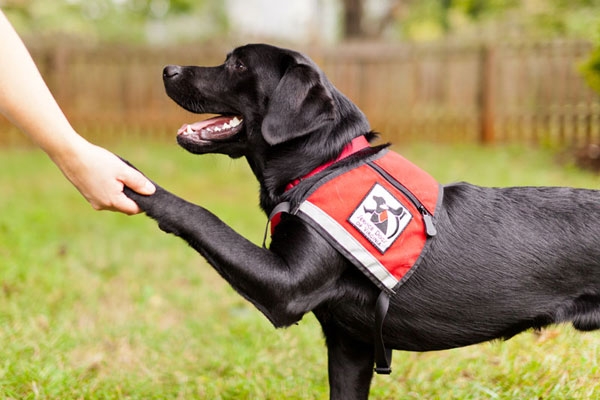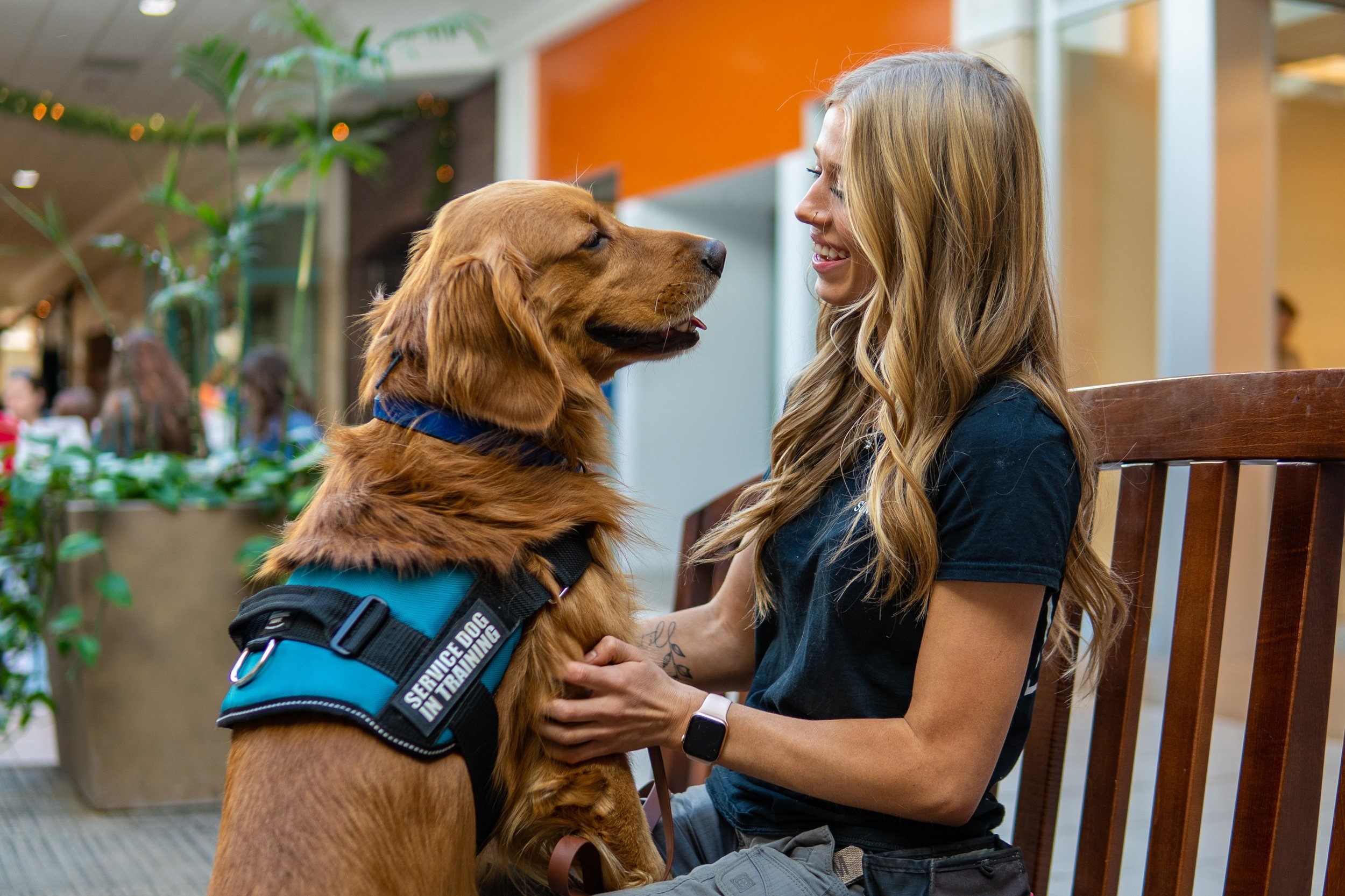Top Dog Training Strategies for Every Stage of Your Pet's Life
Efficient pet dog training is essential at every stage of a dog's life, as each stage offers one-of-a-kind obstacles and opportunities for development. It is vital to identify that training must progress together with a canine's advancement, making sure that methods stay effective and relevant.
Pup Educating Fundamentals
Puppy training fundamentals prepared for a well-behaved adult dog and involve numerous vital elements that need to not be overlooked. The initial stage of training concentrates on establishing a strong bond between the young puppy and its owner, which is important for efficient communication. Socialization is paramount; revealing young puppies to numerous settings, people, and other pets aids them develop self-confidence and flexibility, minimizing the possibility of behavior problems later in life.
Standard commands, such as sit, remain, and come, form the structure of obedience training. Utilizing favorable reinforcement methods, such as treats and appreciation, encourages wanted behaviors and cultivates a positive learning experience. Uniformity in commands and training sessions is essential, as puppies flourish on routine and framework.
Additionally, house training is a vital facet of puppy training. Developing a regular timetable for restroom breaks and making use of designated areas can aid reduce crashes and promote great habits. On the whole, an all-round approach to puppy training, integrating socializing, obedience, and house training, establishes the stage for a well-adjusted grown-up canine, guaranteeing a harmonious connection in between the animal and its owner.
Teenage Habits Management
As puppies grow into teenagers, their actions can transform considerably, typically offering brand-new obstacles for owners. This developing phase, typically occurring between six months and 2 years, is marked by enhanced power levels, inquisitiveness, and a blossoming feeling of freedom. Understanding these adjustments is crucial for effective behavior management.
Teens may exhibit rebellious propensities, such as disregarding commands they previously grasped or taking part in damaging behaviors. Consistency in training remains paramount; reinforcing learned behaviors with positive reinforcement can help neutralize these challenges. Brief, interesting training sessions are necessary to maintain their rate of interest and emphasis.

Additionally, establishing an organized regimen can substantially boost a teenage canine's sense of protection. Normal exercise is important to direct their power positively, reducing the possibility of undesirable behaviors. By employing these methods, proprietors can effectively navigate the complexities of teenage actions, cultivating a well-adjusted, delighted canine friend.
Adult Pet Dog Obedience Methods

Positive support remains an essential technique; satisfying excellent behavior with treats, appreciation, or playtime urges compliance. Uniformity is critical; the exact same commands and rewards should be used by all family participants to stay clear of complication.
Incorporating training into daily regimens can also be efficient. Technique commands during strolls or dish times, allowing training to blend seamlessly right into everyday life. Participating in structured tasks, like dexterity programs or obedience classes, can further enhance a canine's skills while giving important socializing opportunities.
It is crucial to identify that grown-up canines may additionally display stubbornness or complacency. Readjusting training strategies to maintain their rate of interest, such as differing benefits or introducing new commands, can assist receive inspiration. Generally, a continuous dedication to obedience training will certainly foster a well balanced and mannerly grown-up pet dog.
Elderly Pet Dog Adjustment Methods
Acknowledging the special needs of elderly dogs is vital for guaranteeing their comfort and wellness. As dogs age, they may experience a decline in wheelchair, vision, and cognitive feature, necessitating tailored adjustment strategies.
First, think about changing the living atmosphere. Guarantee that the home is accessible and secure; eliminate obstacles and give non-slip surfaces to avoid drops. In addition, take into consideration using steps or ramps to assist them access their favored rooms.
Secondly, exercise should be gotten used to represent lowered stamina and joint health and wellness (Dog Training For Dogs). Engage in much shorter, more regular strolls, and include gentle activities like swimming, which can be advantageous for arthritic joints
Furthermore, psychological excitement remains critical. Use simple challenge playthings or take part in scent job to keep their minds sharp, while preventing overwhelming jobs that this article may irritate them.
Finally, regular veterinary check-ups are necessary to monitor wellness modifications and readjust care regimens as necessary. By carrying out these adaptation techniques, you can enhance the lifestyle for your senior pet dog, guaranteeing they age gracefully and comfortably.
Lifelong Discovering and Enrichment
While dogs of any ages take advantage of learning and mental excitement, long-lasting enrichment is particularly important for maintaining cognitive health and wellness and emotional health in both senior and more youthful canines. Involving tasks not just enhance a pet dog's lifestyle but additionally enhance the bond between the dog and he has a good point its proprietor.
Enrichment can take various forms, consisting of interactive toys, challenge feeders, and scent job, which stimulate a canine's senses and urge analytical. Regular training sessions, incorporating new commands or tricks, maintains their minds sharp and promotes a feeling of achievement. Socializing with various other pet dogs and individuals is just as crucial, as it assists stop behavioral concerns and fosters adaptability.
Moreover, incorporating physical exercise right into a canine's routine is essential for overall health. Activities like agility training, fetch, or long walks offer both physical and psychological stimulation, guaranteeing dogs remain happy and involved.
Lastly, consider varying the setting by presenting new areas for playdates or walks. This modification can reignite a pet dog's curiosity and enthusiasm for expedition. Long-lasting understanding and enrichment not just add to a fulfilling life however likewise advertise an unified connection with your canine friend.
Verdict
Effective dog training methods progress throughout a canine's life, addressing the one-of-a-kind requirements of each developing stage. From developing fundamental skills in young puppies to taking care of adolescent actions, strengthening obedience in adults, and adapting approaches for senior citizens, a detailed technique makes sure optimal communication and actions. Highlighting routine mental stimulation, socialization, and workout fosters a balanced and meeting life for pets. Ultimately, constant application of these strategies adds to a harmonious relationship in between pet dogs and their human companions.
Reliable pet training is vital at every stage of a dog's life, as each stage presents unique obstacles and opportunities for growth.Puppy training essentials lay the foundation for a well-behaved adult pet and involve several essential components that should not be overlooked. Generally, a well-shaped technique to puppy training, integrating socializing, obedience, and residence training, sets the phase for a well-adjusted adult pet dog, guaranteeing a harmonious relationship in between the animal and its proprietor.
Several pet proprietors might find that adult pets, while usually even more steady in behavior than their adolescent equivalents, still need constant training to keep obedience and excellent manners.Efficient pet visit this web-site dog training strategies evolve throughout a canine's life, dealing with the distinct requirements of each developmental phase.